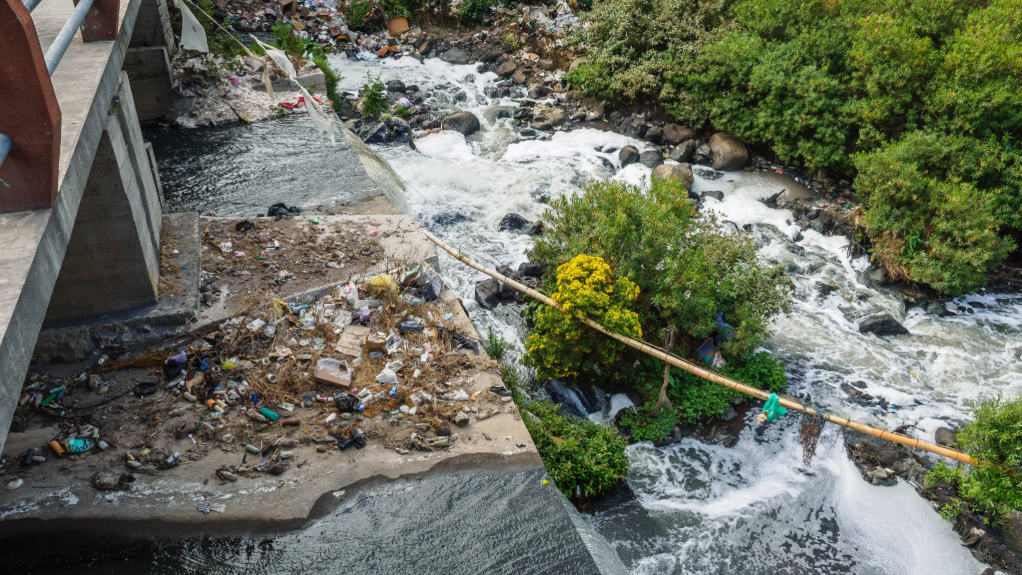
+27 11 441 1111
SRK House, 265 Oxford Road, Illovo, 2196, South Africa

Collaboration needed to address challenges



CRITICAL ROLE Industries play a critical role in maintaining water quality by adhering to regulatory requirements
TAMARYN HALE By joining forces, companies and public entities can identify shared water challenges and develop public-corporate initiatives to address them
Industrial companies in KwaZulu-Natal are increasingly recognising the importance of water resilience and collaborative efforts to address shared water challenges, especially amid ongoing challenges in the province, owing to ageing water infrastructure and poor maintenance.
Many businesses are implementing solutions – such as storing water on site using tanks, drilling boreholes, harvesting rainwater and identifying process efficiencies – to mitigate water supply disruptions, says engineering consultancy SRK Consulting principal environmental scientist Tamaryn Hale.
With the support of frameworks such as the Alliance for Water Stewardship (AWS), and expertise from organisations such as SRK Consulting, Hale is confident that businesses will be better equipped to manage their water risks and contribute to the sustainable management of South Africa’s water resources.
Water stewardship certifications, such as those by the AWS, are essential for helping industries become more resilient in the face of climate change, Hale says, adding that certified companies are not only better prepared for current and future water challenges but are also positioned to access international funding, given the global recognition of the AWS standard.
The AWS certification focuses on water stewardship, which emphasises the collective management of water resources. At the core of the certification is the Water Stewardship Plan, a comprehensive approach that guides businesses in managing water risks based on accurate catchment data.
The plan aims to foster a better understanding of shared water challenges and promote sustainable water-related actions within industries.
Critical Collaboration
Collaboration is essential to building resilience as industries continue working alongside municipalities, nongovernmental organisations and government agencies such as the Department of Water and Sanitation (DWS).
“By joining forces, companies and public entities can identify shared water challenges and develop public-corporate initiatives to address them. Collaboration is crucial, as only three of KwaZulu-Natal’s 172 water supply systems qualified for Blue Drop Certification in 2023 – a stark indication of the region’s water-quality issues,” Hale states.
Industries play a critical role in maintaining water quality by adhering to regulatory requirements, particularly concerning wastewater and stormwater management, she adds, noting that it is vital for industries to understand that they are part of a broader catchment system, with their water use and discharges impacting on the environment.
“Companies must not only comply with regulations but also recognise the need for collective action to address water challenges.”
Hale further emphasises the importance of public–private collaboration, and highlights the National Business Initiative’s water programmes, an example of which is the uMhlathuze Water Stewardship Partnership. These, she says, are already providing frameworks for industries to manage water risks.
These initiatives involve businesses, government and civil society working together to secure water resources in critical areas such as the uMhlathuze region.
Alternatives
Alternative water sources, including borehole drilling and rainwater harvesting, are also becoming more prominent as businesses aim to reduce their reliance on municipal systems.
While this relieves pressure on municipal infrastructure, regulatory approval from the DWS is required to use these sources, often involving extensive specialist studies.
Hale highlights that, despite businesses reducing their dependence on municipal water supply, it remains an important revenue source for local authorities. Thus, the process of obtaining water-use authorisations involves coordination between businesses and municipalities.
Investing in process enhancements and equipment retrofitting is another key strategy for businesses seeking long-term water savings. By improving water efficiency, industries can reduce their water demand and lessen the burden on municipal systems.
Hale says collective action across a catchment area can significantly alleviate pressure on local water infrastructure and, ultimately, improve supply reliability.
The need for resilient water infrastructure in KwaZulu-Natal is further heightened by extreme weather, which often results in poorly maintained systems not being able to handle such events.
Increased development leads to more hardened surfaces, which, in turn, exacerbates stormwater runoff issues. Businesses must collaborate with municipalities to ensure that infrastructure is maintained and upgraded to handle these challenges, Hale concludes.



